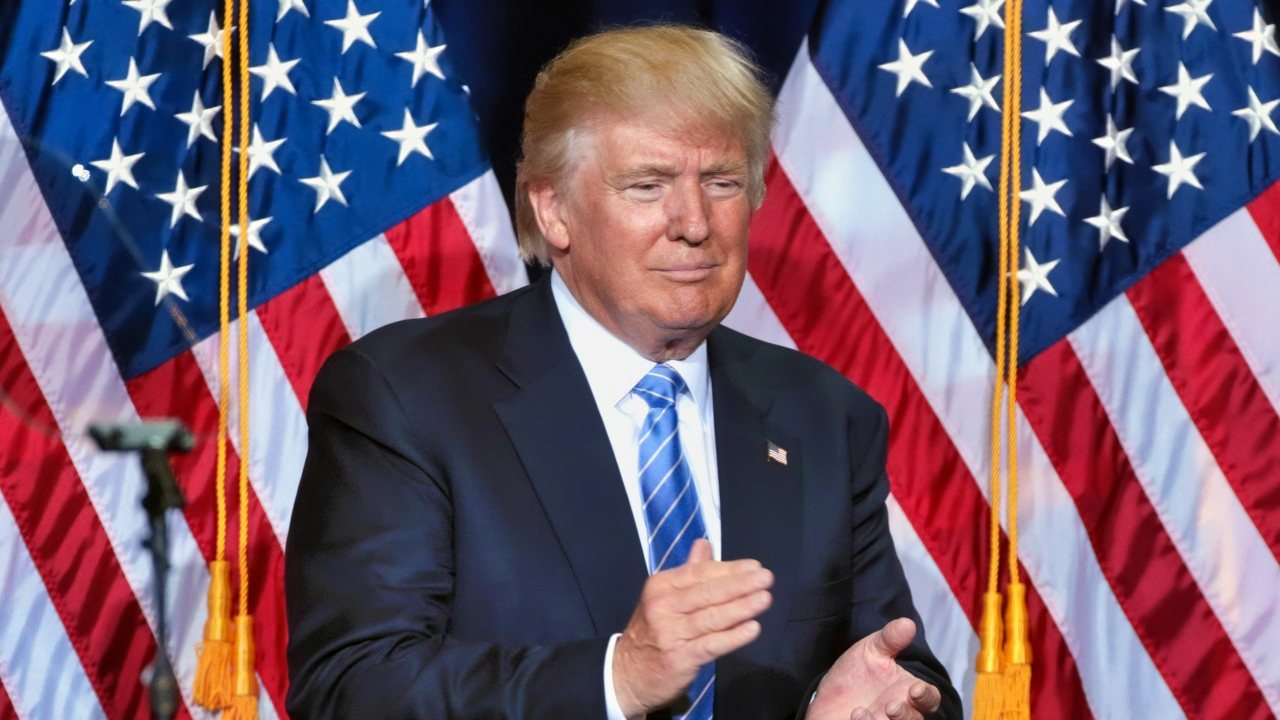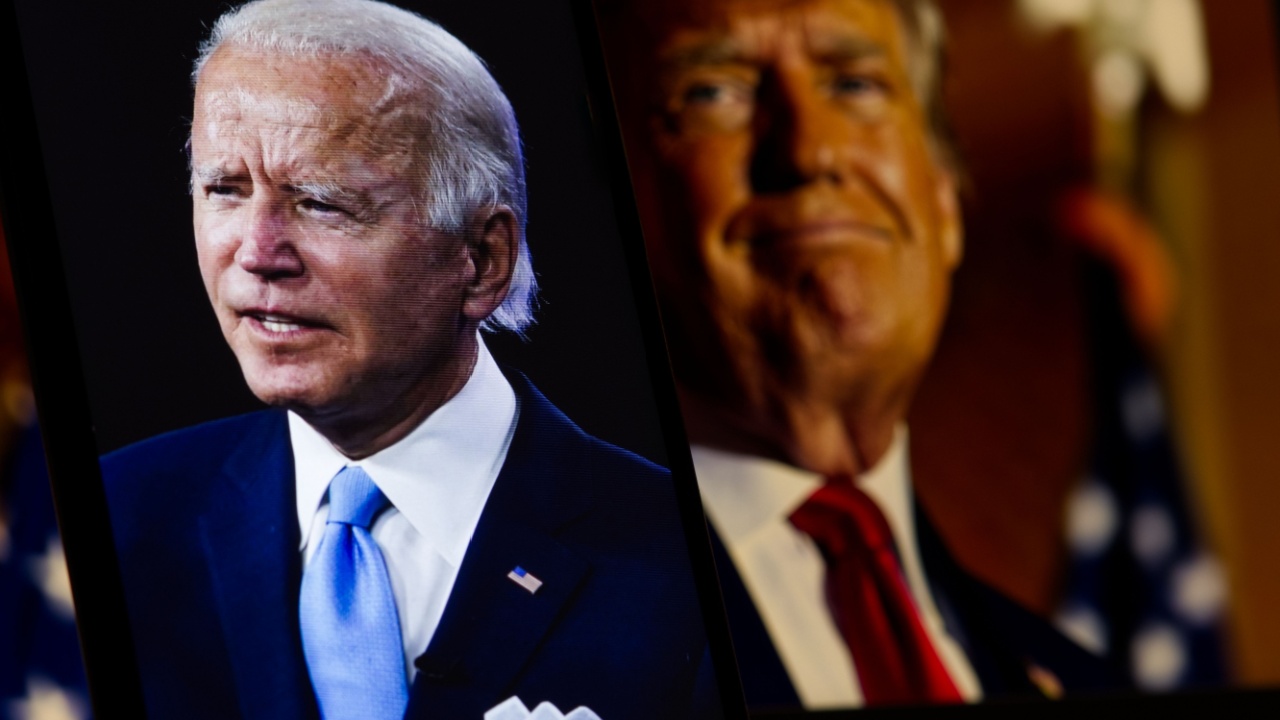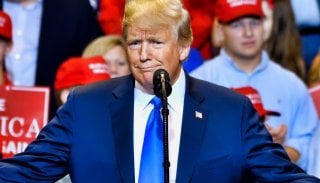Donald Trump, Explained
Tuesday’s presidential election represents just the latest clash in an ongoing epic struggle in America and throughout much of the West between the globalist elites of our time and a growing anti-elitist movement spawned and nurtured in the United States by Donald Trump.
Tuesday’s presidential election represents just the latest clash in an ongoing epic struggle in America and throughout much of the West between the globalist elites of our time and a growing anti-elitist movement spawned and nurtured in the United States by Donald Trump. Despite his often outlandish manner and brutish expression, or perhaps in part because of them, he has forged a true national political movement bent on upending the elites and leading America in a new direction.

Before Trump’s emergence on the political scene back in 2015, both major parties had largely embraced an ethos of globalism, lenient immigration (including illegal immigration), free trade (even when it savaged domestic employment), anti-nationalism, identity politics, and cultural liberalism. Democrats embraced these attitudes avidly, while Republican leaders did so defensively out of a fear that the emerging world of ethnic diversity would leave them behind if they didn’t get with the program.
Then along came Trump with his blanket condemnation of the entire leadership class and his stark pronouncements denoting his intent to apply a political wrecking ball to the status quo. Political leaders of both parties were aghast, but, lo and behold, it turned out there was a serious constituency waiting for such a leader to emerge. Trump’s followers carried him into the White House, and the first big clash in the epic struggle ensued.
Trump lost that first clash. Part of the reason could be attributed to his own political naivete and inability to navigate the labyrinthine corridors of Washington, as well as his own egotistical temperament and narcissistic ways. He never managed to build upon the knot of political sentiment he had summoned during the 2016 campaign and create the kind of governing coalition that every president needs for success–and reelection. He lacked the intellectual tools, political acumen, rhetorical touch, and perhaps the fundamental decency to effectuate that. It often seemed that he simply had no interest in talking to people who weren’t already wearing MAGA hats.
Of course, he also was undermined by one of the most outrageous political maneuvers of recent memory: the bogus allegations of Russian collusion (treason) leading to a special counsel investigation that, in turn, severely undermined Trump’s political standing with much of the electorate. The nefarious nature of this stealthy assault is well documented in the report filed by special counsel John Durham in the spring of 2023.

In any event, Trump’s first term came a cropper when he failed to win reelection in 2020. A president who fails to win reelection is, by that criterion, a failed president, and Trump seemed to undermine his future political prospects even further with his actions on January 6, 2021, in relation to the repugnant Capitol riots. He seemed to be finished as a political figure.
But his followers didn’t go away because they had nowhere to go. And they rebelled when they saw President Biden doubling down on the globalist vision, already so entrenched within the top echelons of American society--the federal bureaucracy, the media, academia, big corporations, big finance, Hollywood, think tanks, and nonprofit NGOs with easy access to federal money. With all these institutions arrayed against the Trump followers, it wasn’t difficult for the Trumpists to see that all they had on their side was Trump himself. So they rallied to his banner throughout the year’s campaign with the aim of continuing the fight.
What are they fighting for? Their beliefs include:
-America’s experiment in nation-building, with an attendant propensity for regime change, has been a failure and needs to be replaced. America must be in the world but shouldn’t try to dominate it.
-Nationalism is a hallowed sentiment tied to old-fashioned patriotism and shouldn’t be denigrated or rejected.

-Identity group politics is eroding national cohesion and, through political correctness, is threatening free speech on the country’s college campuses; that threat will grow throughout society if not checked.
-Borders matter; countries without clearly delineated and enforced borders soon cease to be countries. Immigration should be calibrated to ensure smooth absorption and assimilation.
-Free trade, as practiced in the post-Cold War era, is killing the middle class, hollowing out the country’s industrial base and devastating its middle class. There needs to be more balance in trade relations.
-Islamic radicalism represents a potential threat to the homeland and needs to be monitored closely.
All this is anathema to the globalist leadership class, which had been seeking to fashion a governing coalition along the lines of political analyst Ron Brownstein’s concept of a “coalition of the ascendant,” encompassing racial minorities, immigrants, millennials, and highly educated whites. And one more: “just enough blue-collar Midwestern whites to put the president over the top.” With enough of those blue-collar whites, Brownstein figured, the Democrats could control the “Blue Wall” of crucial Great Lakes states and dominate the Electoral College. It was a nice theory, even after Trump’s 2016 triumph, because Joe Biden pulled that coalition together in 2020 in ousting Trump from the White House.

But this week’s election results shattered that coalition concept and maybe forever. The Blue Wall didn’t hold, and minorities didn’t stick with the Democratic Party in the numbers needed for democratic victory. Trump built upon his numbers from previous elections, while Democrat Kamala Harris slipped below her party’s previous vote levels.
That leaves the Democratic Party in a political bind. It lost the White House Tuesday largely because Biden’s performance in office was so bad as to make the incumbent party ineligible for rehire. The border mess, the inflation surge, the fiscal promiscuousness (which contributed to the inflation), the foreign policy fiasco in Afghanistan, and the bumbling in Ukraine – all left the incumbent and his party looking hapless and incompetent. Exit Kamala Harris; enter Donald Trump.
However, Trump won’t succeed unless he can consolidate his constituency and build on his base through effective governance and deft political maneuvering. He needs, and his country needs, an effective governing coalition. He didn’t manage to build one last time around. This time might be different–or maybe not.
About the Author: Robert W. Merry
Robert W. Merry, former Wall Street Journal correspondent and Congressional Quarterly CEO, is the author most recently of Decade of Disunion: How Massachusetts and South Carolina Led the Way to Civil War (Simon & Schuster). Merry is the former Editor of this publication.
Image Credit: Creative Commons and/or Shutterstock.


